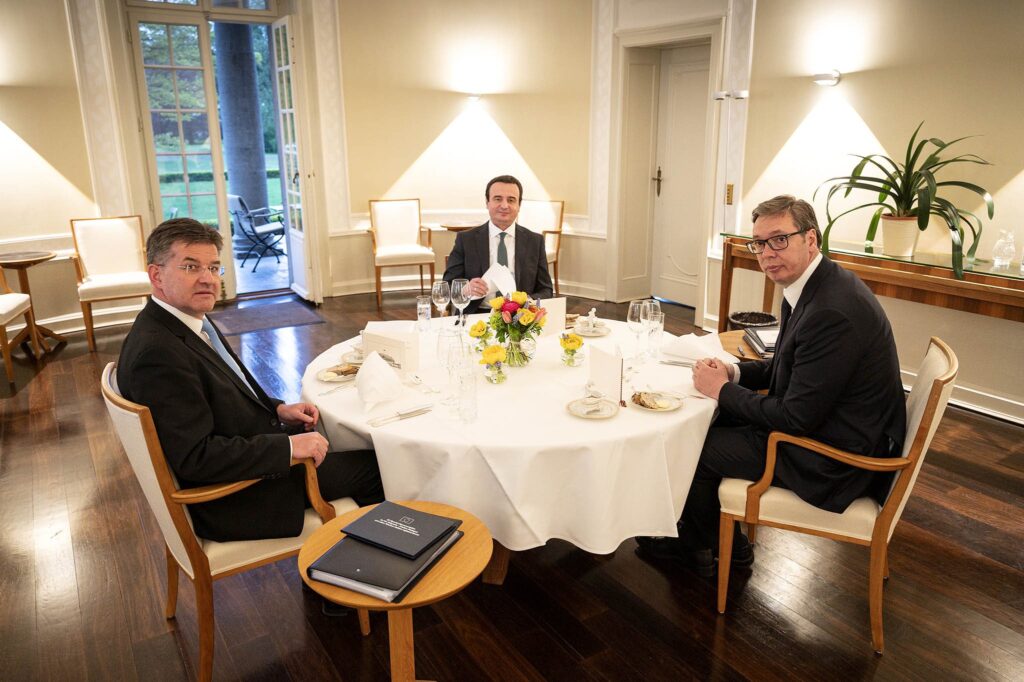Three months before the end of the mandate as EU Special Representative for the Kosovo-Serbia dialogue, the continuation of Miroslav Lajçak’s work has been questioned.
The lack of progress in dialogue during Lajcak’s two years of mediation and his personal ambitions are being considered among the reasons that may change. However, the European Union has not responded to such allegations. Connoisseurs of dialogue developments, on the other hand, urge the EU to redefine its role in this process, regardless of whether or not the facilitator of the dialogue changes.
Violeta Haxholli from the Democratic Institute of Kosovo (KDI), says that the lack of progress in the dialogue was not only Lajçak’s fault, as there was no will from the parties for an agreement.
“Mr. Lajcak has had a uniform role in the dialogue process. He has tried to bring the parties closer in their positions on specific agreements. It is not that he has made much progress, but it is not that it was his fault, as much as the lack of will of the parties, Kosovo and Serbia, to reach certain agreements. “Then there were numerous electoral processes in the time that Lajçak served, change of governments in Kosovo and so on,” says Haxholli.
Insistent on extending Lajcak’s mandate is analyst Gazmir Raci, who says Lajcak is a career diplomat and an influential figure in EU and Slovakia politics.
According to him, with the support of the United States, Germany, France and Great Britain, Lajcak can advance the dialogue process.
“Mr. Lajcak is a career diplomat from Slovakia and an influential person, he also has influence in EU policy, he has strong connections and contacts with representatives of the American government. His mandate should be extended again because he is a person who has great influence and comes from a country that has not recognized Kosovo and in case of a final agreement between Kosovo and Serbia, I expect Slovakia to be among the first to will recognize the independence of Kosovo. “Of course he can not postpone the process alone, without the help of the United States, Germany, France and also Great Britain,” Raci declared.
Despite possible changes in the dialogue mediation process, Violeta Haxholli from KDI, says that the EU should be more demanding and guaranteeing the final agreement with mutual recognition.
“We are still not informed that there are plans for him to be replaced by another representative. I believe that in this regard, the EU should in general, depending on what representative will serve as a facilitator of the dialogue process, the EU has the opportunity to condition more Kosovo and Serbia to commit to the dialogue process and achieve a agreement. In this regard, it can condition Serbia in this case that it has opened chapters with the EU, insist on implementing the agreements reached and be more constructive in the dialogue process in general. Regardless of whether or not the person who will facilitate the dialogue changes, ie whether someone will replace the dialogue, I believe that the EU will redefine its role in this process by being more demanding and guaranteeing the agreement reached and more demanding towards the parties that to be more committed to this process “, she adds.
Miroslav Lajçak received the mandate on April 4, 2020, initially for a term of 1 year, then last year his mandate was extended until August 31, 2022








